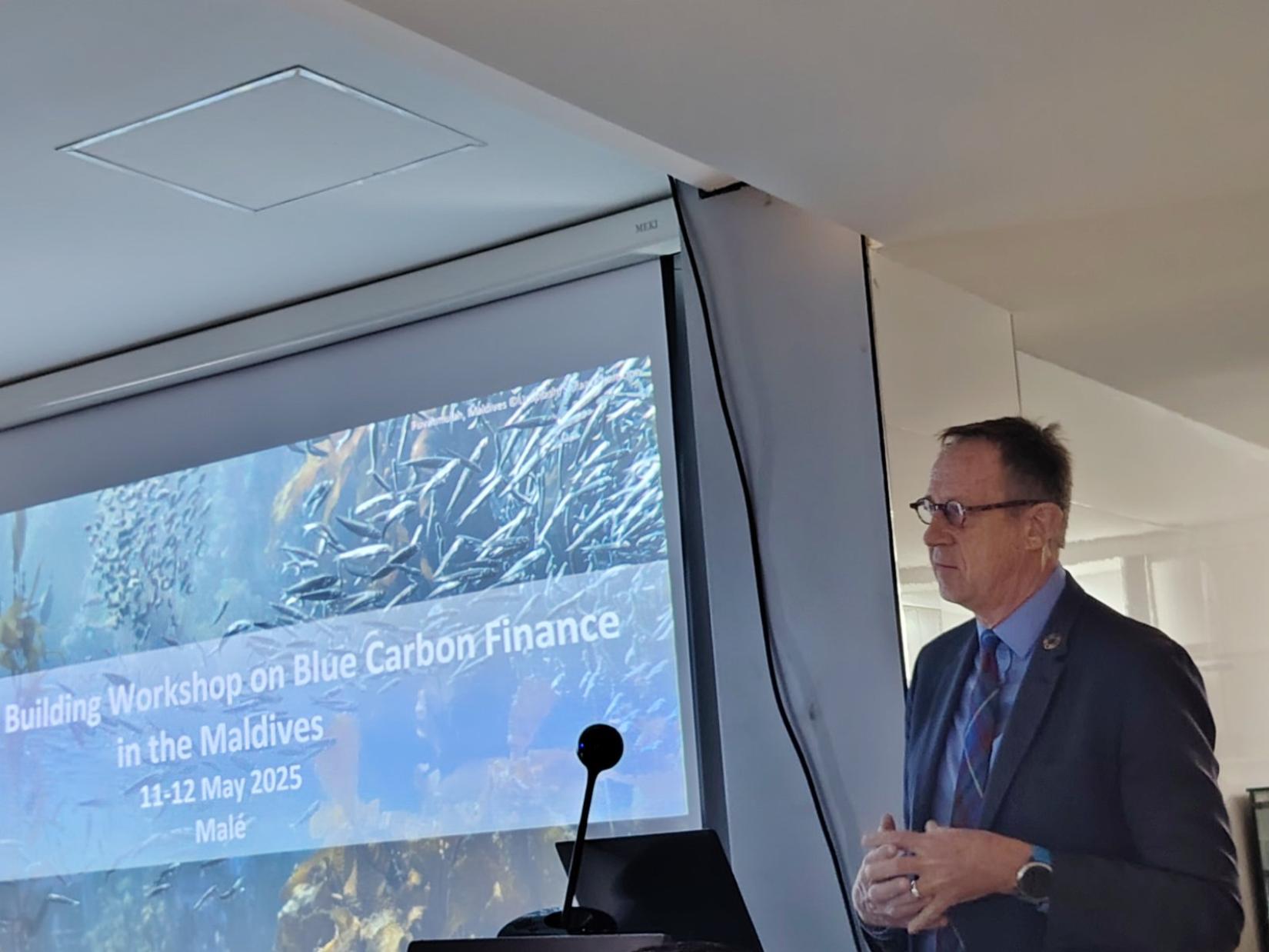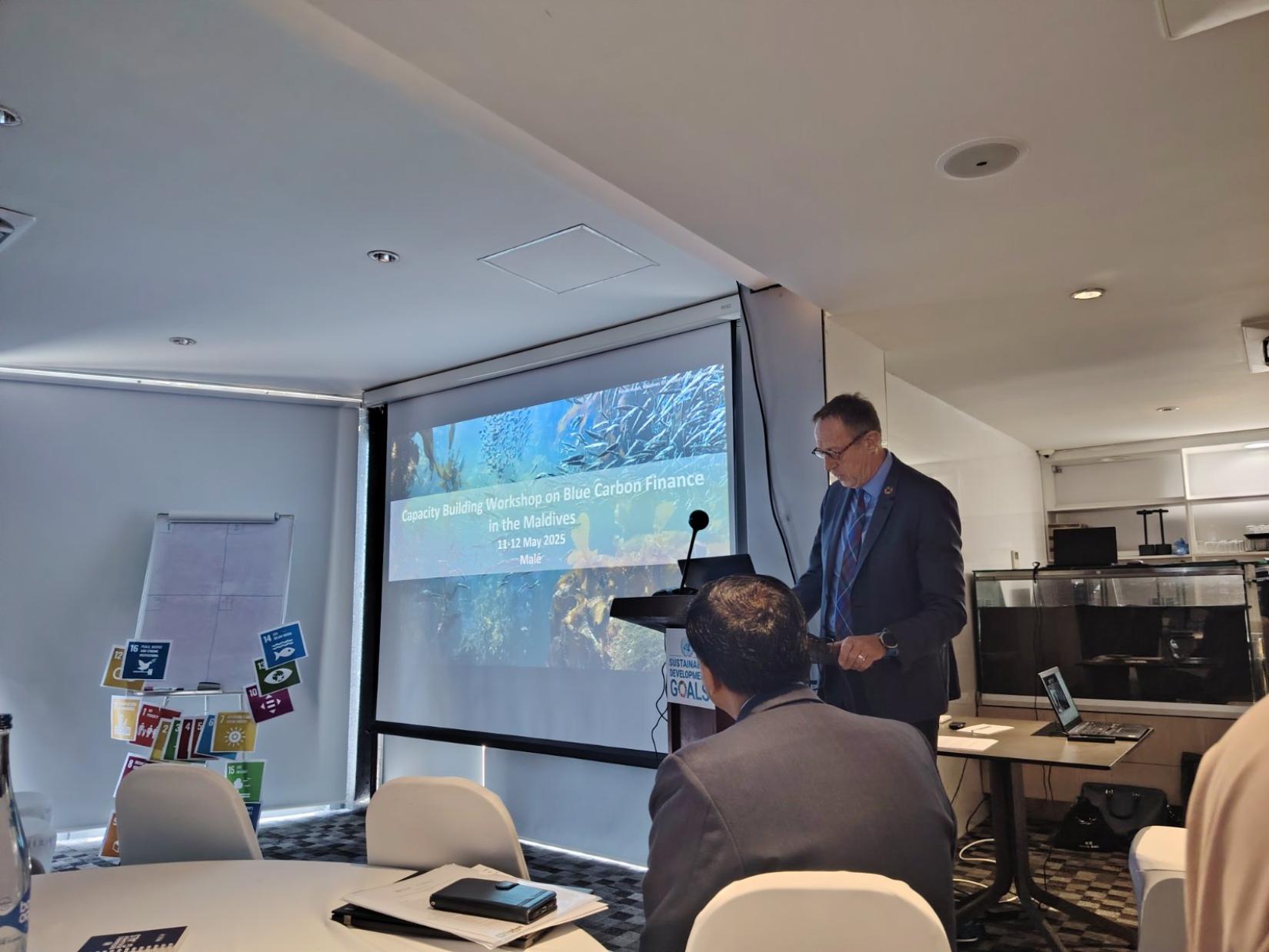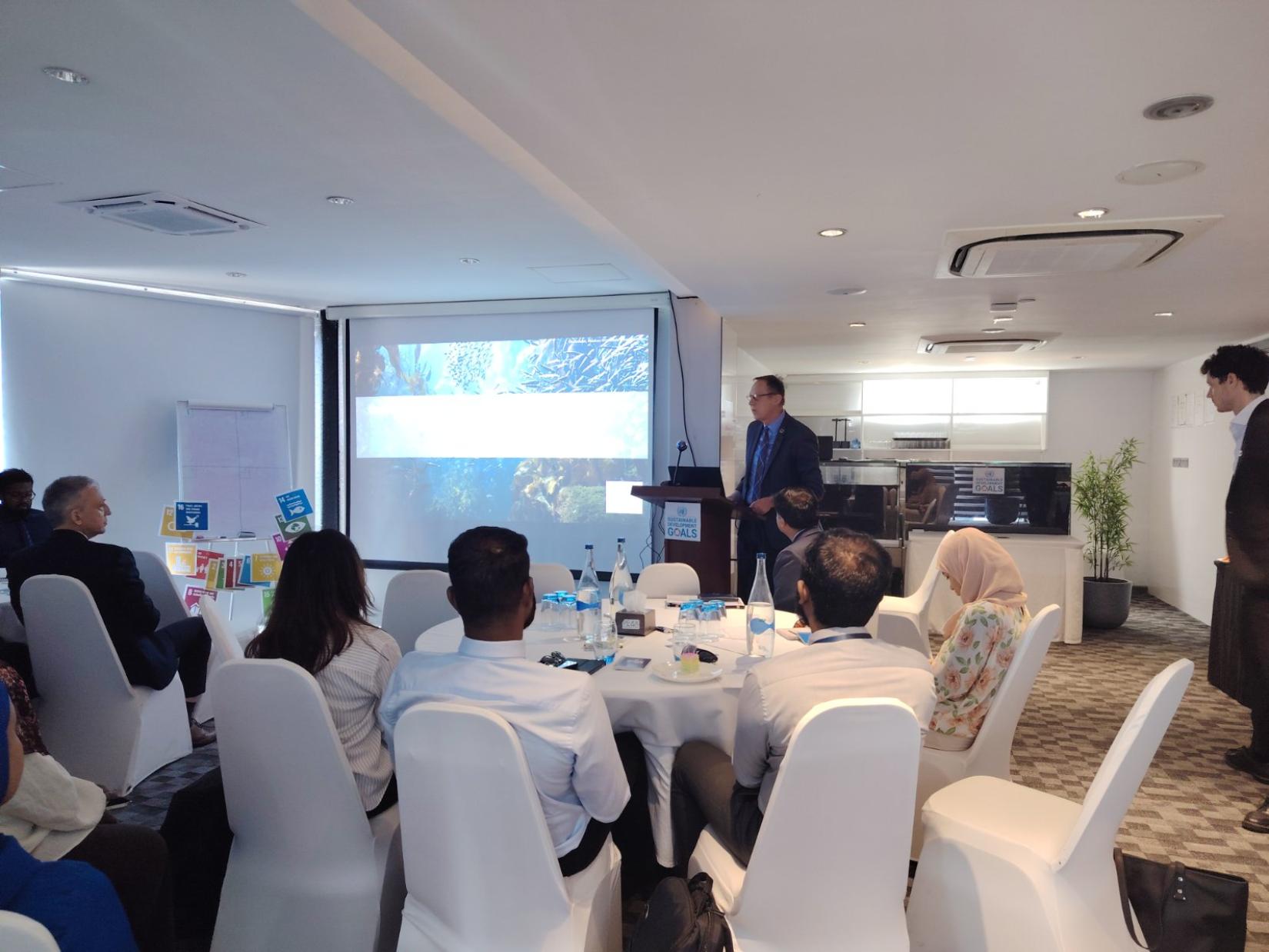Capacity-Building Workshop on Blue Carbon Finance -Opening Remarks by the United Nations Resident Coordinator in Maldives
Blue Carbon Finance

Excellencies, Deputy Ministers
Distinguished colleagues,
Ladies and gentlemen,
Good morning.
It’s a pleasure to welcome you to this pivotal workshop on Blue Carbon Finance—an issue gaining urgency globally and carrying immediate, high-stakes relevance for Maldives.
Let me begin by thanking the United Nations Economic and Social Commission for Asia and the Pacific (ESCAP) for its leadership in convening this event. We also deeply appreciate the engagement of national partners, including the Ministry of Tourism and Environment and the Ministry of Finance and Planning. Your leadership, vision and commitment are critical to turning blue carbon potential into practical progress.
As Maldivians, you know far better than I how much the future depends on the health of the marine ecosystems. These ecosystems are not only central to your way of life—they are the first line of defence against climate change. We are already seeing the impacts: coastal flooding, erosion, and sea surges are threatening communities, damaging infrastructure, and threatening key sectors like tourism and fisheries.
These are challenges we know all too well—rooted in global dynamics shaped by industrialised nations. But rather than dwell on external forces, why not turn our attention to the opportunities closer to home?
Blue carbon ecosystems—mangroves, seagrass meadows, and coral reefs—play a critical role in the Maldives’ resilience and prosperity. They store more carbon per square metre than even tropical forests, buffer the coasts from sea-level rise and surges, support biodiversity, and sustain key sectors such as fisheries and tourism. Their preservation is both an environmental imperative and a strategic investment in climate mitigation, economic stability, and community well-being.
This workshop—part of ESCAP’s project ‘Enhancing Investments for Equitable and Accelerated Climate Action’—supports national efforts to use marine ecosystems to meet NDC targets and advance SDG14. Well-designed financing, including carbon markets, can cut emissions while creating jobs and local benefits. ESCAP’s accelerator approach helps identify high-impact actions that deliver strong returns.
Maldives has made important strides, including its 2030 net-zero target and inclusion of blue carbon in its NDCs. But unlocking their full value will require sustained, innovative finance—from markets and blended tools to public-private partnerships.
This is precisely where this workshop plays a vital role.

It is not just about technical exchanges—it is about equipping institutions, aligning policies, and developing the financial and governance frameworks needed to ensure blue carbon becomes a viable tool for climate action and sustainable development.
This workshop builds on the momentum of the Asia-Pacific Blue Economy Forum, held in Malé in May 2024. Co-convened by UNDP and the Ministry of Economic Development and Trade, with UK Government support, the Forum brought together over 100 delegates from 15 countries to advance sustainable ocean development and innovative financing. It highlighted the urgency of closing the region’s $5.5 trillion blue financing gap, and the potential of blended finance, public-private partnerships, and results-based mechanisms to drive investment in marine conservation, sustainable fisheries, and low-emission maritime transport. Maldives’ leadership was clearly affirmed, alongside recognition that delivering results—especially for Small Island Developing States—requires deeper coordination, innovation, and international partnerships. The Forum also mobilized over USD 500,000 to support MSMEs and promote regional dialogue on marine sustainability.
But permit me also to highlight the considerable further contributions made by the UN in Maldives to blue carbon finance, as part of broader efforts to promote a blue and green economy. We piloted low-emission hybrid vessels, helped establish the Maldives’ first legally recognized Community Conserved Area—protecting 583 hectares of coral reef and seagrass—and supported the updated National Biodiversity Strategy and Action Plan. Through youth programmes, we also activated 282 Climate Guardians across seven islands, strengthening local stewardship of marine ecosystems. These initiatives lay a strong foundation for scaling blue carbon finance in 2025 and beyond.

Excellencies, colleagues, ladies and gentlemen,
At a time of growing global financial uncertainty, the need for coordination, coherence, and collaboration has never been greater. This applies not only within the UN system, but also among national institutions, communities, and international partners. The challenges we face are too complex, and the opportunities too interconnected, to be tackled in silos. Under the UN 2.0 vision and the UN80 reform agenda, the UN Country Team in Maldives is committed to maximizing impact through more integrated, agile, and effective support. But success will depend on how well we work together—aligning efforts, pooling resources, and learning from one another. Blue carbon is not just a climate solution—it is a strategic investment in resilience, equity, and long-term prosperity for Maldives and beyond.
Thank you—and I look forward to the rich exchanges and above all rich outcomes ahead




